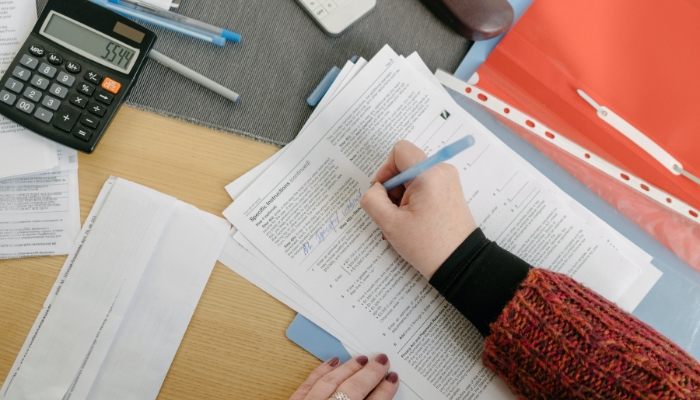
If you’ve ever wondered about someone’s rental history in the Peace Garden State, you’re in the right place. You can look up eviction records in north dakota with relative ease. These public records provide valuable insight into a person’s past housing situations. They can be a useful tool for landlords, lenders, or curious neighbors.
To look up eviction records in North Dakota, search through the county court records where the eviction occurred, either online or by visiting the courthouse. This is important for legal, personal, or business purposes related to housing and tenancy.
By learning how to navigate these documents, you’ll understand the legal framework of evictions and how to interpret the information you find. This guide will help you make sense of the eviction process in North Dakota and how you can use this information to your advantage.
Understanding Eviction Records in North Dakota
Understanding eviction records in North Dakota is crucial whether you’re a tenant or a landlord. It means knowing what they are, why they’re important, and how they can impact you.
An eviction records search reveals details of a North Dakota eviction. Similar to how one might look up eviction records in Ohio, both found in public court records. These records are critical for a property management company to assess prospective tenants’ reliability. If you’ve been evicted, it’ll appear on this public record, potentially influencing future housing opportunities.
On the flip side, if you’re a landlord, these records provide valuable insight into a potential tenant’s rental history. Therefore, understanding these records is crucial whether you’re a tenant or a landlord.
Make sure you’re informed about how public records, like eviction histories, can impact your property rental or search in North Dakota.
Legal Framework for Evictions in North Dakota
Now, let’s dive into the legal framework for evictions in North Dakota, taking a closer look at the laws and regulations that govern this process.
Just as property owners in North Dakota must follow strict guidelines for eviction, those in Oklahoma also have specific procedures, which you can understand better when you look up eviction records in Oklahoma. North Dakota law requires you to provide a written notice detailing the reason for eviction, such as non-payment of rent or violation of lease terms.
If the tenant doesn’t resolve the issue within the specified time, you can file an eviction lawsuit. An eviction record search can reveal North Dakota’s eviction records, offering insight into a tenant’s rental history.
It’s crucial to understand this legal framework for evictions in North Dakota to ensure a fair and lawful process.
How to Access Eviction Records in North Dakota?

Accessing eviction records in North Dakota can be crucial for various reasons, whether you’re a landlord, legal professional, or a concerned citizen. Here’s a simple, step-by-step guide to help you navigate through this process.
Step-by-Step Guide to Accessing Records
- Identify the Relevant Court: Eviction records are typically held by the district court or municipal court where the eviction case was filed. For instance, if the property is in Fargo, you would start with the Fargo Municipal Court.
- Visit the Court’s Website or Office: Many courts have an online platform where you can conduct a records inquiry. If not, you may need to visit the court in person. For online searches, go to the court’s website and look for a link to public records or case information.
- Search by Name or Case Number: You can search for eviction records using the name of the tenant or landlord, or the case number if you have it. This search can reveal various documents related to the eviction, such as filings, court judgments, and case status.
- Request for Records: If the records are not available online, you may need to submit a request in writing or fill out a form at the court’s office. Some courts might require a fee waiver application if you cannot afford the search fees.
- Review the Records: Once you have access to the records, review them carefully. They can provide detailed information about the eviction, including the reasons for eviction, court proceedings, and the final judgment.
Online Resources and Databases
- North Dakota Court’s Public Access: The North Dakota Court system offers an online service for public access to court electronic records. This is a comprehensive database for property records, including eviction cases.
- Third-Party Websites: There are various online services and screening agencies that provide access to eviction records. However, ensure they are reputable and have excellent service ratings.
- Consumer Reporting Agencies: These agencies often have access to detailed background screening reports which include eviction information. They are particularly useful for landlords conducting tenant background checks.
Public Access to District Court Case Information
- Accessing District Court Records: For detailed information, visit the North Dakota District Court’s website. Here, you can access a wide range of public documents, including confidential court records under certain conditions.
- Understanding the Information: The records will typically include the civil court structure, civil court caseloads, and specific details about the eviction case. It’s important to understand the legal terminology used in these documents.
- Limitations and Privacy: Be aware of the limitations regarding public inspection. Some records might be sealed or restricted, especially in cases involving domestic violence or sexual assault.
- Using the Information: The information obtained should be used responsibly and ethically. Especially if it’s being used for background checks or tenant screening.
In conclusion, accessing eviction records in North Dakota involves identifying the right court, utilizing online resources, and understanding how to navigate public records. Whether you’re doing this for legal, personal, or professional reasons, it’s important to respect privacy laws and use the information ethically.
Interpreting and Using Eviction Information
Once you’ve navigated North Dakota’s public records and gathered eviction data. It’s crucial to know how to interpret and use this information effectively. You can cross-check eviction data against criminal records, providing a comprehensive view of an individual’s past actions.
Online access to these records allows for quick, efficient research from anywhere. Understand that evictions are legal documents; they reflect a court’s decision based on verifiable circumstances.
Look for patterns in previous evictions, such as repeated instances or close succession, which may indicate a potential risk.
Lastly, utilize public terminals at local courthouses for in-depth analysis, or to obtain records not available online. Always use this information responsibly and in compliance with privacy laws.
Privacy and Restrictions in Accessing Eviction Records

When accessing eviction records in North Dakota, it’s crucial to understand the balance between public access and privacy rights. Here’s a breakdown of what information is typically public and the restrictions you might encounter.
What Information is Public?
- Case Details: Basic details like the names of the parties involved, case number, and the status of the case (open or closed) are usually public. This includes the district court or municipal court where the case was filed.
- Court Judgments and Filings: The outcomes of eviction cases, such as judgments or decrees, are generally public. This might include information on whether the eviction was granted or denied.
- Hearing Dates and Times: Information about when the case was heard or any scheduled future hearings is typically available for public viewing.
Restrictions and Privacy Concerns
- Sensitive Personal Information: Courts are cautious about revealing sensitive personal information. Details like social security numbers, financial information, or anything that could lead to identity theft are usually redacted.
- Cases Involving Minors or Sensitive Issues: If the eviction involves minors or sensitive issues like domestic violence or sexual assault, the records may be partially or completely sealed. However, in certain circumstances, specific parties may be granted access to these records, although this typically requires a legal request or court order.
- Legal Limitations: Credit bureaus and consumer reporting agencies face legal limitations on using eviction records, and they must not misuse this information, particularly for discriminatory purposes.
- Online Access Limitations: Many courts provide access to records through their online platforms. But they may limit the depth of information available online compared to what you can access in person at the courthouse public terminal.
In summary, while eviction records are largely public, there are significant privacy protections and legal restrictions in place. These measures ensure that the public can access necessary information while also protecting the privacy and rights of individuals involved in eviction cases.
Conclusion
In conclusion, while this guide focuses on North Dakota, the process of understanding eviction records. Such as when you look up eviction records in Oregon, requires similar knowledge of local legal frameworks and public records systems. It’s crucial to accurately interpret and use this information.
Whether you’re a landlord, tenant, or just a curious citizen, being informed about eviction records can provide valuable insights. Remember, knowledge is power – so use these resources to your benefit. Let this be your guide to navigating eviction records in North Dakota.
FAQs on Eviction Records in North Dakota
Can I view eviction records from the Tribal Court in North Dakota?
Eviction records from the Tribal Court may have different accessibility rules compared to state courts. Generally speaking, these records are accessible. But it’s important to contact the specific tribal court directly for their procedures and any exclusive jurisdiction considerations.
How do I use the Public Access to Court Electronic Records for finding eviction information?
The Public Access to Court Electronic Records system allows you to search for eviction cases by entering specific details like names or case numbers. This system is designed to provide comprehensive contact info and current contact details for cases within its database.
Are there any fee waivers available for accessing eviction records in North Dakota?
Yes, fee waivers may be available, especially for individuals who cannot afford the search fees. You would need to apply for a waiver at the court where the records are held, typically the district court or municipal court.
What should I do if I find incorrect information in my eviction record?
If you discover inaccuracies in your eviction record, you should contact the clerk of the district court where the case was filed. They can guide you on the process to correct any errors. Which might involve submitting an answer document or other legal paperwork.